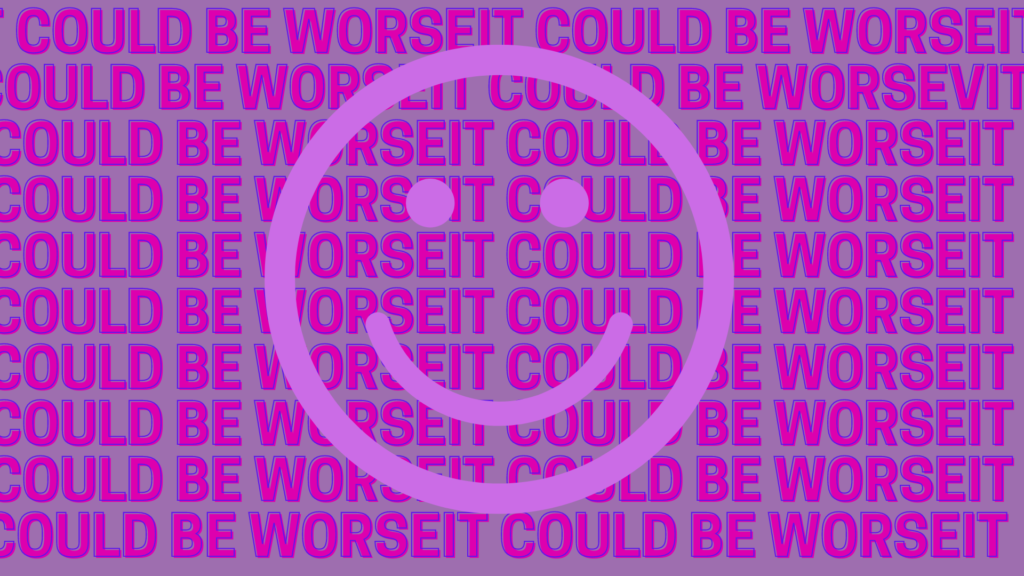When I was 14, my father passed away unexpectedly. I still remember the words that the counselor said to me not even a day after it happened.
“I know it’s bad but trust me, it could be worse.”
The sound of this instruction echoed in my head for days. This was the hardest experience I had ever been through, and the woman who I had trusted to guide me through, completely dismissed me. Nevertheless, I told myself she was right and I moved on. Being grateful that I had what I had.
Barely two years later, my mom became sick with a tumor. I watched on the days where she couldn’t get out of bed, I saw the fear in her eyes. Truthfully, I was scared of losing her too.
When I told my math teacher the morning after I found out, with tears streaming down my face and a shaky voice, she looked me in the eyes and spoke utterly familiar words:
“That must be hard but I promise it could be worse.”
Eventually, I realized that every scary or sad experience in my life had been minimized simply because one person claimed I should be happy because my life could be worse. This led me to ask an important question: When is it worse? Where is the rubric that determines when I’m allowed to feel my emotions and express sadness or disappointment?
Even if unintentional, it is human nature to compare struggles. When you are young you’re told to finish your food because “there are people in Africa who are starving.” However, to break out of this mindset, we must realize that one is allowed to have a problem and be upset about it, even if it’s less extreme than somebody else’s.

Americans are pushing a positive narrative on people facing trauma. When something bad happens, the first thing people want to tell you is to be grateful for what you have and not to focus on the negative. This not only reinforces the idea that we must be happy all the time but also encourages the use of toxic positivity.
According to Healthline, toxic positivity is defined as “when negative emotions are seen as inherently bad. Instead, positivity and happiness are compulsively pushed, and authentic human emotional experiences are denied, minimized, or invalidated.”
Often, one may not even know that they are reinforcing this mindset. Simply telling somebody to “be happy” or “look on the bright side” is not always done with malicious intent, and positivity is not always harmful, however, when said after a traumatic or stressful event, it can be problematic. Mostly for the fact that it insists positivity is the key to recovery in all situations.
Instead of resorting to this mindset constantly, one method you can use is to validate the emotions in question. Simple sayings like “I hear you” or “what you’re feeling is understandable” can make a drastic difference in how someone exits a tough conversation about their feelings.
When all else fails, ask the person having difficult emotions what you can do for them. Sometimes all they’ll need to feel better is someone to vent to.
Along with this, if you’ve fallen victim to a classic case of toxic positivity, there are some things you can do to correct the conversation as well. Remember to share your wishes with the person you’re talking to, because like previously stated, sometimes the mindset of toxic positivity is subconsciously enforced. “Can I just vent to you real quick?,” or “can I get some advice on this?” are both great ways to set up your expectations for the conversation.
The biggest way to prevent this from happening though is much easier said than done. Remembering that the value of your emotions does not lie in the hands of others is key. You are allowed to express and feel your feelings in whatever way you please, as long as it does not endanger yourself and others around you. It does not have to be “worse” for you to be upset.





So amazing. Keep doing your thing girl!!!
This is such an excellent story! Your unique perspective on this really made me think. I appreciate you, and keep on writing!